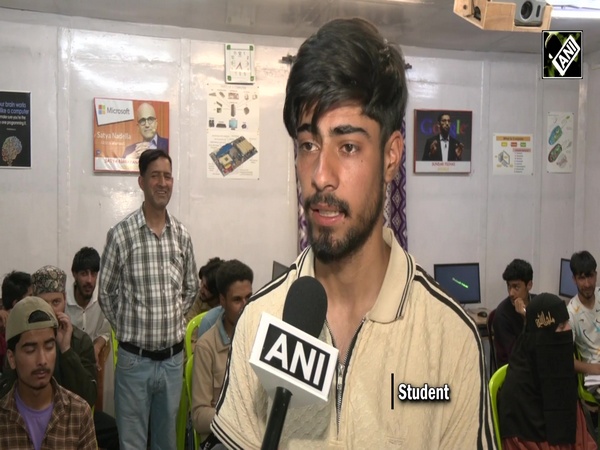Second stimulus tranche offers ration and rent for migrant workers, urban poor, farmers
May 14, 2020

New Delhi [India], May 14 : Finance Minister Nirmala Sitharaman on Thursday announced the second tranche of Rs 20 lakh crore stimulus package with a focus on migrant workers, street vendors, small traders, self-employed people and small farmers.
During his address to the nation on Tuesday, Prime Minister Narendra Modi had announced a stimulus totalling 10 per cent of India's GDP to rescue the economy reeling under the impact of coronavirus-led lockdown.
A day later, Sitharaman announced Rs 3 lakh crore collateral-free automatic loans for businesses, including micro, small and medium enterprises, besides Rs 30,000 crore liquidity facility for non-banking finance companies.
"The government will supply free foodgrain for migrants for the next two months," she said on Thursday. Migrants who are neither covered under the National Food Security Act or state card beneficiaries will be provided five kg of wheat or rice and one kg chana per family for two months.
"About 8 crore migrants are expected to benefit under the scheme. Rs 3,500 crore will be spent on this intervention for two months. The cost will be fully borne by the government," said the Finance Minister.
She also announced the introduction of 'One Nation, One Ration Card,' enabling migrant workers to access foodgrains through the Public Distribution System (PDS) from any fair price shop in India by March 2021.
Nearly 67 crore beneficiaries in 23 states covering 83 per cent of PDS population will be covered by national portability by August 2020, By 2021, 100 per cent will be covered.
Sitharaman said the Centre will soon launch a scheme under Pradhan Mantri Awaas Yojna for migrant labour and urban poor to provide ease of living at an affordable rent. This will be done by converting government-funded housing in the cities into affordable rental housing complexes under public-private partnership mode through a concessionaire.
Migrant workers are being actively enrolled for work in their states, ensuring that they are not sitting idle. States have been advised to provide them with work under the MNREGA Act. Plans are afoot to make minimum wages universal for all workers, she said.
Sitharaman said the portability of welfare benefits is being considered. There is a plan to extend Employees' State Insurance Corporation (ESIC) benefits to workplaces with less than 10 workers. They will be made mandatory for workers in hazardous jobs.
Besides, there is a plan to re-skill retrenched workers. All units should be opened to women workers in every shift with proper safeguards in place
For street vendors, a liquidity provision of Rs 5,000 crore will be made to provide credit facility to 50 lakh street vendors. Initial working capital will be of up to Rs 10,000 per person. This will be launched within a month. Digital payments will be rewarded by further liquidity.
For the lower-middle-income group with an annual income of Rs 6 lakh to 18 lakh, a credit-linked subsidy scheme was introduced in May 2017 which was to last till March 31, 2020. This is being extended to March 31, 2021.
"Over 3.3 lakh families previously benefited, and an additional 2.5 lakh middle income families will join in. Jobs creation, steel, cement and heavy-duty material will improve," said Sitharaman.
To create jobs for tribals or adivasis for forestry-related work, nearly Rs 6,000 crore of funds under the Compensatory Afforestation Fund Management and Planning Authority (CAMPA) lying in various states are being given a push. They are going to be approved shortly and will create jobs for tribals, said the Finance Minister.
She said Rs 30,000 crore additional emergency working capital fund through NABARD (over the annual Rs 90,000 crore provision) will be immediately released for small and marginal farmers.
This will support post-harvest rabi produce and preparatory work for kharif crops. State cooperative banks, district cooperative banks and regional rural banks have been roped in. The initiative will directly reach and benefit three crore rural farmers.
In addition, Rs 2 lakh crore will be made available to 2.5 crore farmers under the Kisan Credit Scheme, giving them access to concessional institutional credit. Fishermen and animal husbandry farmers will be considered under this scheme.
















